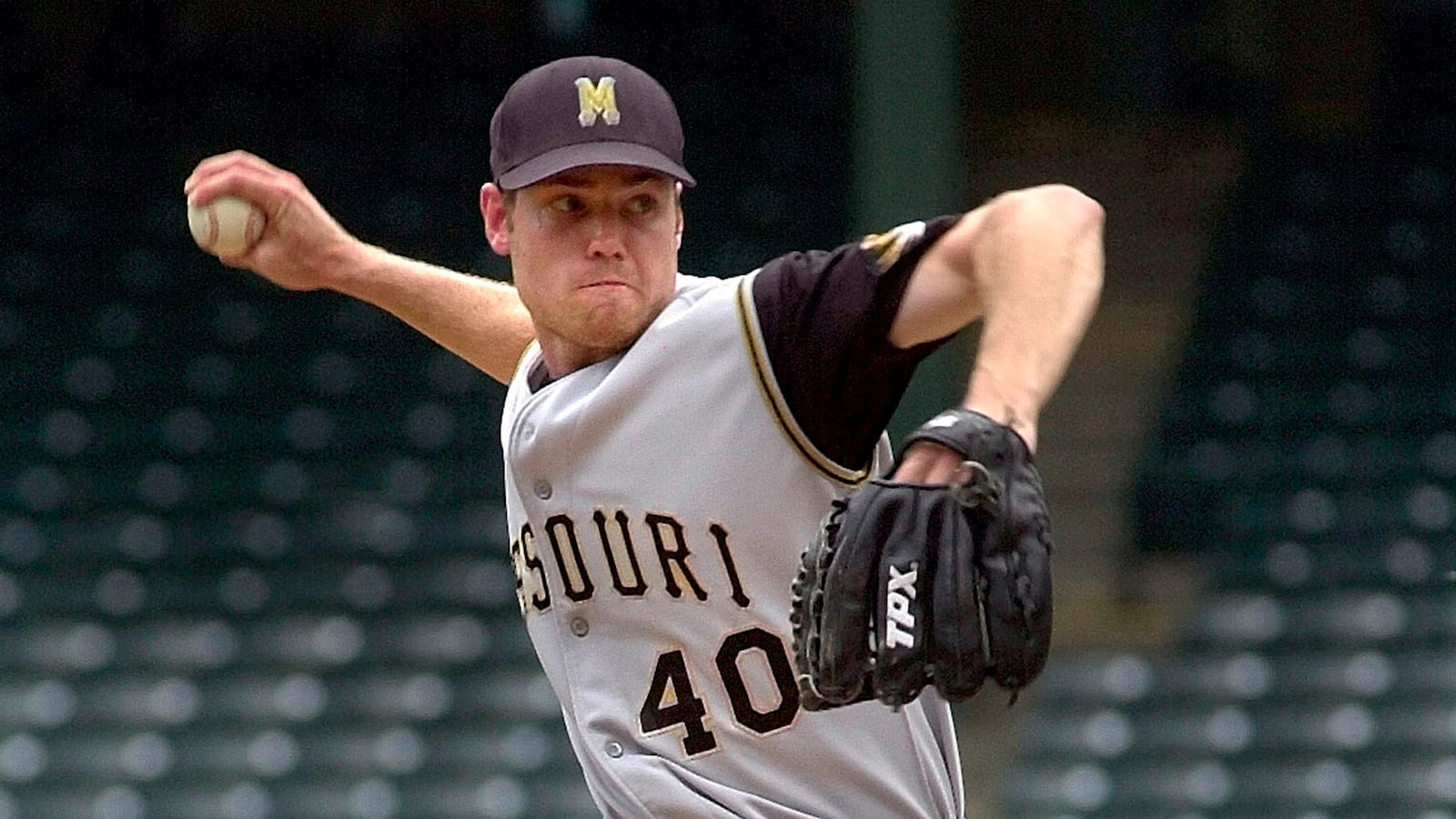There’s talent, and there’s luck, and when Garrett Broshuis was a high school senior in the tiny town of Advance, Missouri, he says the right people saw him throw the ball at the right time. That’s how he got a scholarship to the University of Missouri that was part athletic, and part academic.
After a couple so-so seasons, he had what he calls “a magical year where everything came together,” and he was drafted in the 5th round of the 2004 Major League Baseball draft, early enough in the then-50 rounds that it came with a $160,000 signing bonus.
It was pretty heady stuff for a young man who loved sports. His backup plan of grad school in psychology to study memory research and work with Alzheimer’s patients got put on hold, and off he went to pursue his dream of becoming a starting pitcher for the San Francisco Giants. Over five years, he played with the Giants’ farm teams: the Salem-Keizer Volcanoes, the San Jose Giants, the Connecticut Defenders and the Fresno Grizzlies.
In 2009, ready to join a Triple-A team, the last step before the majors, he got his dream dashed. “It was the last day of spring training and the manager called me into his office and said he didn’t see me fitting into their plans,” Broshuis told the Daily Beast. “I had a spot in the minors and could continue playing if I wanted, but he didn’t see me going on to the majors. I was 28 at the time. I joke only runway models age quicker.”
He played that season, and on the long bus rides between games, mainly at night while the others were sleeping, he studied for the LSAT. He took the law school admission test three days after his last season as a ball player. “I was good enough to keep hanging around, but never good enough to break through to the majors,” he says.
That is the fate that awaits the vast number of players drafted into the majors. They never get there and their time in the minors is marked by real economic hardship. The wages are low and the working conditions difficult, all in the service of chasing what for most will be an impossible dream.
Broshuis is now a lawyer compiling data and evidence for a class action suit against Major League Baseball and Commissioner Bud Selig. He started with three players in February, suing the Miami Marlins, the San Francisco Giants, and the Kansas City Royals, along with MLB and Commissioner Selig.
Slowly over the course of the next two months, Broshuis had 32 plaintiffs, and all 30 Major League teams are defendants. His law firm, Korein Tillery, based in St. Louis, is known for bringing huge class action suits, and just won reinstatement of an $11 billion verdict against Big Tobacco.
A Daily Beast request to MLB’s corporate office for comment did not yield a response. MLB made 8 billion dollars last year, with revenue growing exponentially because of TV contracts. “If McDonald’s can figure out how to pay workers minimum wage, surely these teams can do it as well,” says Broshuis.
The suit he is bringing asks for minimum wage during the baseball season, plus overtime compensation. He notes that players aren’t paid during the long off-season, even though they are expected to do extensive workouts.
“It’s what you would think for a modern athlete, “ he says, ticking off baseball specific hitting, throwing and fielding, plus stretching, strength training, speed and agility routines, a physical regimen that makes it hard to get a job. “And who’s going to hire you for four months until you go to spring training?” he asks.
His six figure signing bonus gave Broshuis a cushion, but it fell to his wife, a physical therapist back home in St. Louis, to pay the bills while he was riding around the country. “I was one of the lucky ones but looking around at the other guys, it didn’t make sense,” says Broshuis. “Once you’re past the 10th round, a lot of those guys sign for $1000.” (There are now 40 rounds, down from 50 when Broshuis was drafted.)
Wages are $1100 a month only during the season; no salary is paid during spring training. “First year in Double A, you’ll find a lot of guys making $7500 for the entire season,” he says. Four, five, six players will crowd into a single small apartment to save money on rent, and the teams expect them to eat in a healthy manner.
“These guys eat a ton of peanut butter and jelly sandwiches. A lot of them have no breakfast or lunch, it’s the first thing they eat at two in the afternoon before the game,” he says, adding that to this day, he won’t eat peanut butter and jelly.
He remembers his first year befriending a pitcher from Venezuela, who had a pregnant fiancée back home and was trying to scrape together $20 a month to send her. “I felt so bad for the guy, it was the first time I started thinking about this problem.”
Now that he’s traded in his pitcher’s mitt for a law degree, Broshuis says, “There are definite things that I miss about baseball—the feeling about going out there, I was a starting pitcher, taking that ball and throwing that first pitch, it’s difficult to duplicate that feeling. But I worked as hard as I possibly could and that dream wasn’t meant for me. Now I have a chance to help a lot of guys through this lawsuit.”






